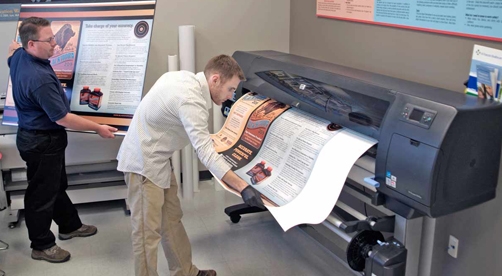We live in times when the production process can’t be run without state of the art technology. Therefore, everything invested in the production process has to be at very low tolerances. This means the design process is actually more critical than ever. Of course, large format media helps engineers see drawings in 1:1 scale. This advantage means that you can now see in real size what you are doing, but also, using scanning, you can take old drawings and convert them to digital format, which of course means that you can redesign parts later.
Not to mention buildings and constructions in general. Current buildings sometimes have thousands of different drawings, not to mention large infrastructure projects which need tens of thousands of drawings to cover each different part.
In real life, managing such quantities of documents is a critical task. In different scenarios, you need quick access to documents, sometimes even to save human life. A good management of these documents, helps you find and retrieve documents, even on critical deadlines, not to mention it assures you of their safety and integrity. Using large format scanning you can be more reliable and faster in business.
Having these plans correctly stored digitally, with easy retrieval, can also help you get a lower insurance cost, as insurance companies lower premiums for those buildings that have clear evacuation plans, are correctly managed and in general nothing is left aside when managing that building.
You also have to take into account resolution, color or black and white, and last but not the least, transparencies. Standard paper plans are easy to scan, generally you need a good color balance and a good color profile on your machine. Remember, mantaining accurate colors is critical, especially in electric, hydraulic and water based applications. Colors have to be clearly different, one from the other, so the user of those scans is able to understand where everything has to go.
The other side of the problem are actually the transparencies. These usually present a difficult task to the operator, as they need more managing and care, and usually they slip and slide through the rollers while scanning. Also, you need to have a good background and generally the levels and threshold, have to be very accurately configured, for the material that goes through the machine.

























